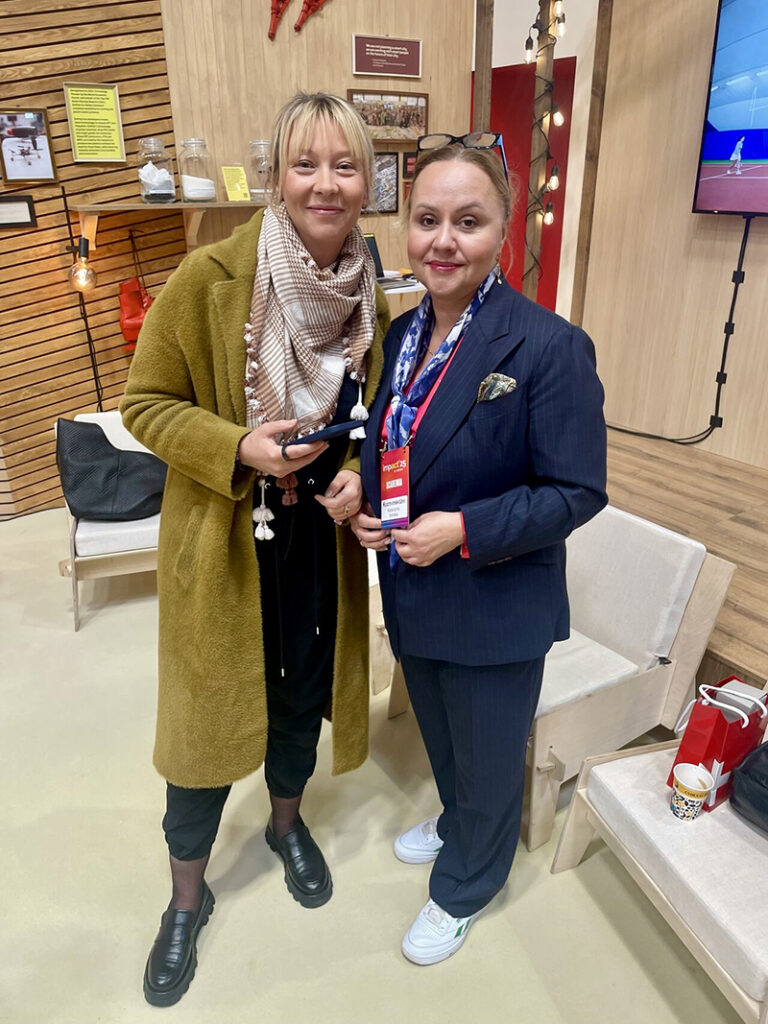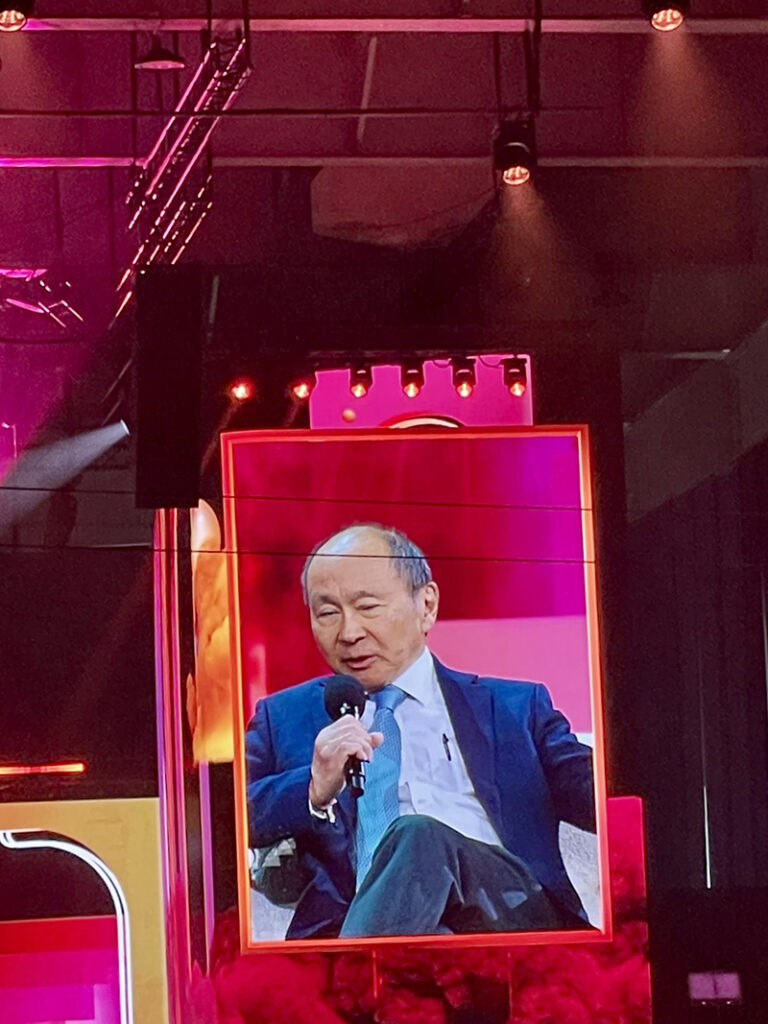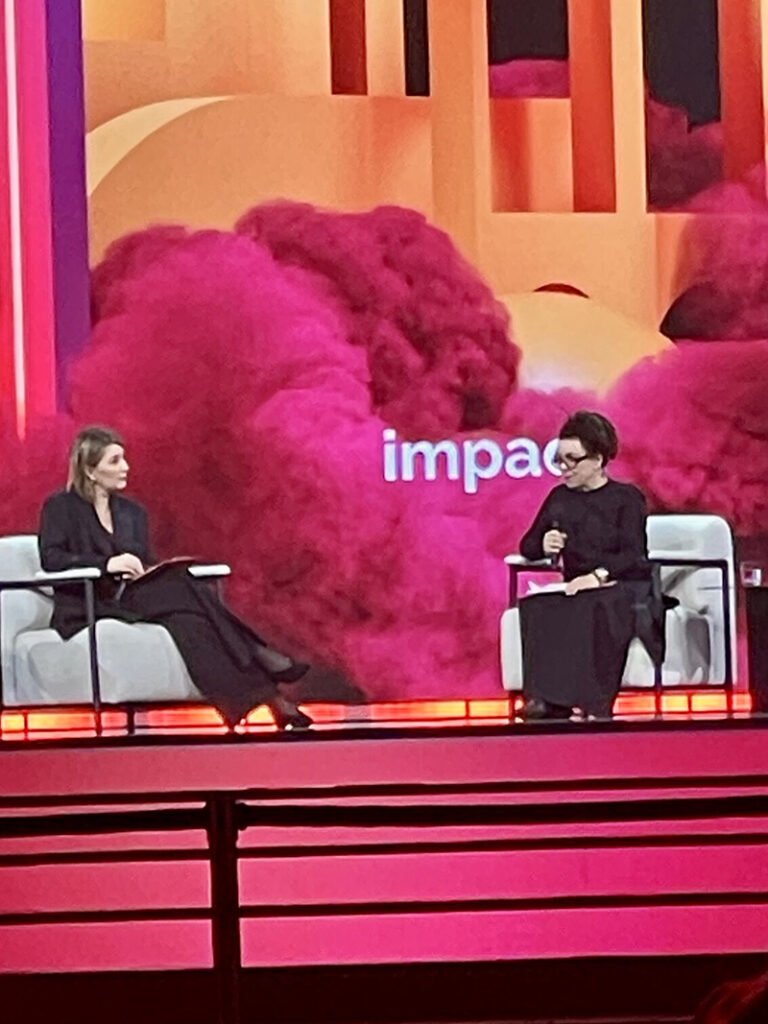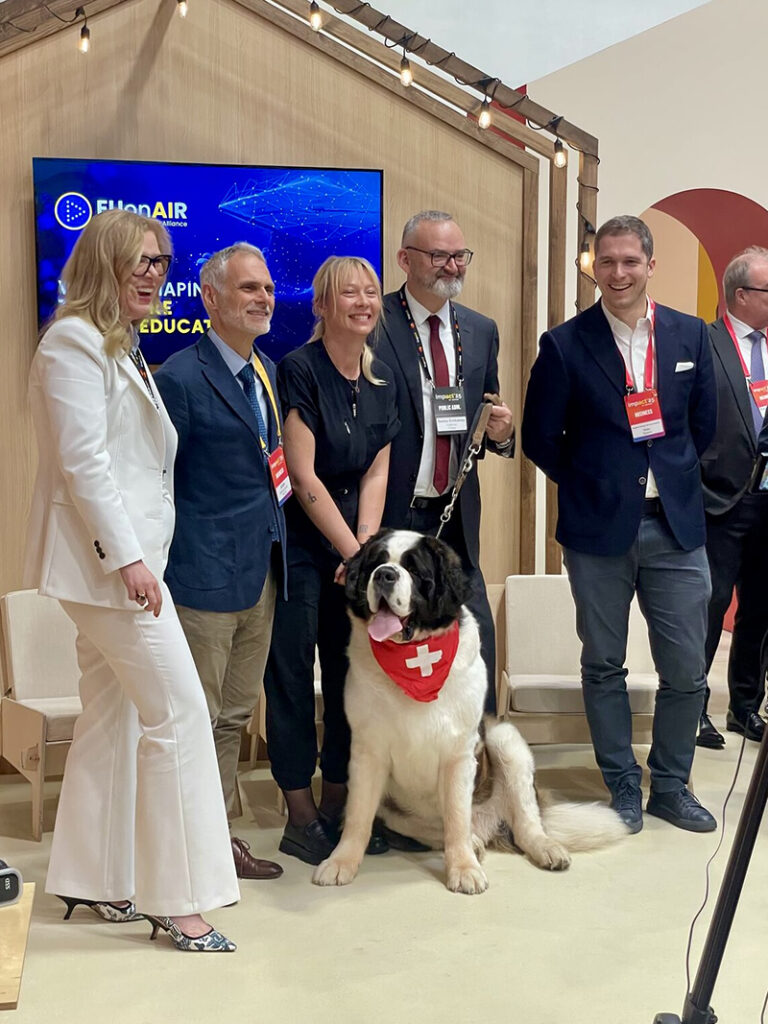
Undoubtedly, it is one of the most important events in Central and Eastern Europe, bringing together leaders from business, politics, science, and technology.
This year’s edition became a platform for discussions on key challenges of the modern world, such as threats to democracy, the development of artificial intelligence, energy transition, mental health, and the commercialization of outer space.
Katarzyna Alińska, Managing Director of the Foundation, shared her reflections as follows:
“One general thought I left Impact with is not optimistic. We live in a world plunged into a crisis of ideas, leadership, and trust in technology. And this unease could be felt and heard in many discussions.”

Barack Obama spoke about the growing crisis of democracy and the erosion of trust in institutions. He warned that without responsible leaders who serve their communities, societies could descend into chaos. He emphasized the importance of civic engagement and solidarity as an antidote to the breakdown of social bonds. A similar tone was taken by Prof. Francis Fukuyama, who pointed out the return of geopolitical uncertainty, the threat of authoritarianism, and the declining relevance of liberal values. His words conveyed concern—but also a call to rethink the role of institutions and the responsibility of political elites.
The theme of the future—though from a different angle—was also addressed by researchers of new technologies. Aleksandra Przegalińska noted that artificial intelligence is no longer just a tool; it is becoming a factor redefining human relationships and our very identity. In her speech, she called for ethical reflection and attentiveness to the direction in which the digital world is heading. Cédric Villani, a French mathematician, argued that Europe has a chance to pursue its own responsible path of AI development—based on democracy, education, and inclusivity. He emphasized that the future of technology also raises questions about our political and social culture.
Amid this multitude of diagnoses and warnings, the words of Olga Tokarczuk resonated especially deeply with me. Our Nobel laureate spoke about the need to build a sense of community. Attentiveness, tenderness, openness to others—these values, she stressed, can become a practical remedy for the loneliness of systems, the disintegration of human ties, and dehumanization. Literature, art, and storytelling, according to her, are not merely forms of escape but real forces that can help rebuild meaning in a world in search of order.
Impact’25 demonstrated that in the face of global tensions—political, technological, and social—we need a new humanistic sensitivity.
Perhaps it is in empathy and community, as Tokarczuk suggested, that we will find the answer to the questions that trouble today’s world.
“The basic sense of solidarity that most Americans feel towards Europe doesn’t depend on our government, but on our people.” – Barack Obama


